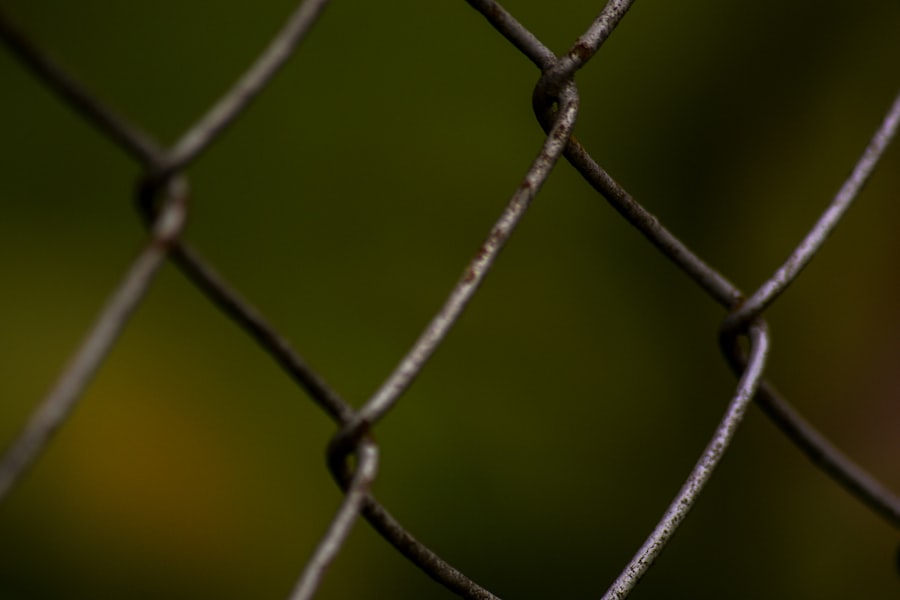Chickens exhibit natural curiosity and social behavior, frequently exploring their environment and engaging with other chickens. They are opportunistic feeders, constantly searching for food sources. Understanding these innate behaviors is essential for effectively deterring chickens from undesired areas.
By recognizing their natural instincts, one can implement strategies that align with their behavioral patterns rather than opposing them. Chickens are creatures of habit, often returning to familiar locations for food and shelter. Once they identify a food source or comfortable roosting spot, they are likely to revisit it regularly.
This behavioral pattern allows for the anticipation of their movements and the implementation of proactive measures to prevent access to these areas. Chickens are also known to be sensitive to environmental changes, and alterations to their usual routine or surroundings may prompt them to seek new areas for food and shelter.
Table of Contents
- 1 Implementing Physical Barriers
- 2 Using Deterrents and Repellents
- 3 Creating a Distraction
- 4 Securing Food Sources
- 5 Maintaining Cleanliness
- 6 Seeking Professional Help
- 7 FAQs
- 7.1 What are some effective ways to keep chickens out of the garage?
- 7.2 Why is it important to keep chickens out of the garage?
- 7.3 Are there any natural deterrents that can be used to keep chickens out of the garage?
- 7.4 What should I do if chickens have already made a habit of entering the garage?
- 7.5 Are there any legal restrictions on keeping chickens out of the garage?
Key Takeaways
- Chickens are naturally curious and will explore their surroundings, so understanding their behavior is key to managing them.
- Implementing physical barriers such as fences and netting can help keep chickens out of unwanted areas.
- Using deterrents and repellents like motion-activated sprinklers or predator decoys can discourage chickens from entering specific areas.
- Creating distractions with toys or treats can redirect chickens’ attention away from areas they shouldn’t be in.
- Securing food sources in sealed containers can help prevent chickens from being attracted to certain areas.
- Maintaining cleanliness by regularly removing food scraps and keeping the area free of debris can help deter chickens from lingering.
- Seeking professional help from animal control or pest management experts may be necessary for persistent chicken-related issues.
Implementing Physical Barriers
Fencing and Netting
This can include installing fences or netting around gardens or other vulnerable areas to prevent chickens from gaining access. It is important to ensure that these barriers are secure and properly maintained, as chickens are known for their ability to find weaknesses in fencing and other structures.
Motion-Activated Sprinkler Systems
Another physical barrier that can be effective in deterring chickens is the use of motion-activated sprinkler systems. These devices can startle chickens with a sudden burst of water, discouraging them from entering the area.
Chicken Wire and Mesh
Additionally, the use of chicken wire or mesh can be effective in preventing chickens from accessing specific areas, such as under porches or decks where they may seek shelter.
Using Deterrents and Repellents

In addition to physical barriers, there are also a variety of deterrents and repellents that can be used to discourage chickens from unwanted areas. One common method is the use of visual deterrents, such as scarecrows or reflective tape, which can startle chickens and make them hesitant to approach certain areas. Another effective deterrent is the use of noise, such as clapping or using a whistle, to startle chickens and discourage them from entering specific areas.
There are also a variety of natural repellents that can be used to deter chickens. For example, the scent of certain herbs and spices, such as garlic or cayenne pepper, can be effective in deterring chickens from specific areas. Additionally, the use of predator urine or other animal-based repellents can also be effective in deterring chickens from accessing certain areas.
Creating a Distraction
One effective strategy for deterring chickens from unwanted areas is to create a distraction that draws their attention away from the area in question. This can include providing alternative food sources, such as setting up a designated feeding area away from vulnerable gardens or other areas. By providing a consistent and easily accessible food source, you can redirect the chickens’ attention and discourage them from seeking out other food sources.
Another effective distraction technique is the use of decoys or other objects that can attract the chickens’ attention. For example, setting up a decoy bird or other animal near vulnerable areas can draw the chickens’ attention away from the area in question. Additionally, the use of noise-making devices, such as wind chimes or bells, can create a distraction that discourages chickens from entering specific areas.
Securing Food Sources
One of the most effective ways to deter chickens from unwanted areas is to secure food sources and eliminate potential attractants. This can include properly storing and securing food and garbage, as well as removing any fallen fruit or other food sources that may attract chickens. By eliminating these attractants, you can reduce the likelihood of chickens seeking out these areas for food.
Additionally, it is important to properly dispose of any food scraps or leftovers in a secure manner, such as in a sealed compost bin or garbage container. This will help prevent chickens from accessing these food sources and reduce their incentive to enter unwanted areas. By securing food sources and eliminating attractants, you can effectively deter chickens from accessing specific areas.
Maintaining Cleanliness

Cleanliness is Key
In addition to securing food sources, maintaining cleanliness in and around your property can also be an effective deterrent for chickens. This includes regularly cleaning up any spilled food or debris that may attract chickens, as well as keeping outdoor areas tidy and free of clutter. By maintaining a clean and well-kept environment, you can reduce the likelihood of chickens seeking out these areas for food and shelter.
Inspect and Maintain Structures
It is also important to regularly inspect and maintain any structures or buildings on your property to ensure that they are secure and free of potential roosting spots for chickens. This can include repairing any damaged roofing or siding that may provide access to sheltered areas for chickens.
Effective Deterrent Methods
By maintaining cleanliness and regularly inspecting your property, you can effectively deter chickens from accessing unwanted areas.
Seeking Professional Help
If you have tried various deterrent methods and are still experiencing issues with chickens accessing unwanted areas, it may be necessary to seek professional help. A pest control expert or animal control professional can provide additional insight and assistance in effectively deterring chickens from specific areas. They may be able to offer additional strategies and techniques that are tailored to your specific situation, as well as provide guidance on long-term solutions for preventing chicken access.
Additionally, seeking professional help can also ensure that any deterrent methods used are safe and humane for the chickens. Pest control experts have the knowledge and experience to implement effective deterrents while minimizing harm to the animals. By seeking professional help, you can ensure that you are taking the most appropriate and effective measures for deterring chickens from unwanted areas on your property.
If you’re looking for more tips on keeping chickens safe and secure, you might want to check out this article on chicken coop run plans from Poultry Wizard. It offers valuable information on creating a safe and comfortable environment for your chickens, which can help prevent them from wandering into your garage.
FAQs
What are some effective ways to keep chickens out of the garage?
Some effective ways to keep chickens out of the garage include installing barriers such as fences or netting, using motion-activated deterrents, and keeping the garage door closed at all times.
Why is it important to keep chickens out of the garage?
It is important to keep chickens out of the garage to prevent damage to vehicles, equipment, and stored items. Additionally, chickens may leave droppings and feathers in the garage, creating a messy and unsanitary environment.
Are there any natural deterrents that can be used to keep chickens out of the garage?
Yes, natural deterrents such as citrus peels, coffee grounds, or vinegar can be placed around the perimeter of the garage to discourage chickens from entering.
What should I do if chickens have already made a habit of entering the garage?
If chickens have already made a habit of entering the garage, it may be necessary to physically block off access points, such as gaps in doors or windows. Additionally, consistently shooing the chickens away whenever they attempt to enter can help break the habit.
Are there any legal restrictions on keeping chickens out of the garage?
Local ordinances and homeowners’ association rules may have restrictions on keeping chickens on the property or allowing them to roam freely. It is important to check and comply with any relevant regulations.
Meet Walter, the feathered-friend fanatic of Florida! Nestled in the sunshine state, Walter struts through life with his feathered companions, clucking his way to happiness. With a coop that’s fancier than a five-star hotel, he’s the Don Juan of the chicken world. When he’s not teaching his hens to do the cha-cha, you’ll find him in a heated debate with his prized rooster, Sir Clucks-a-Lot. Walter’s poultry passion is no yolk; he’s the sunny-side-up guy you never knew you needed in your flock of friends!







